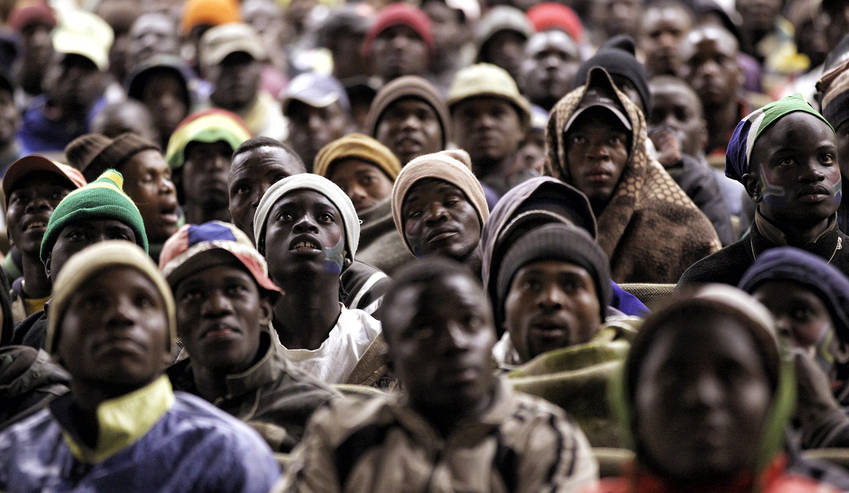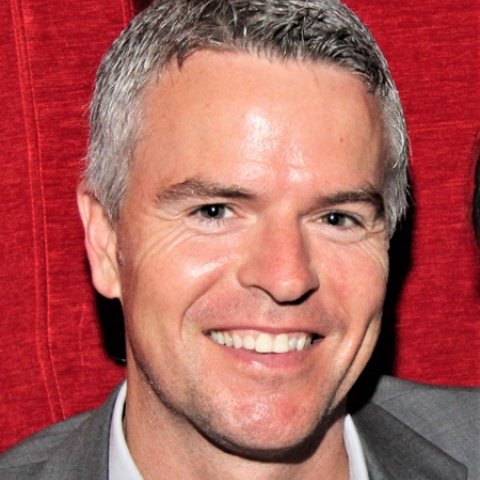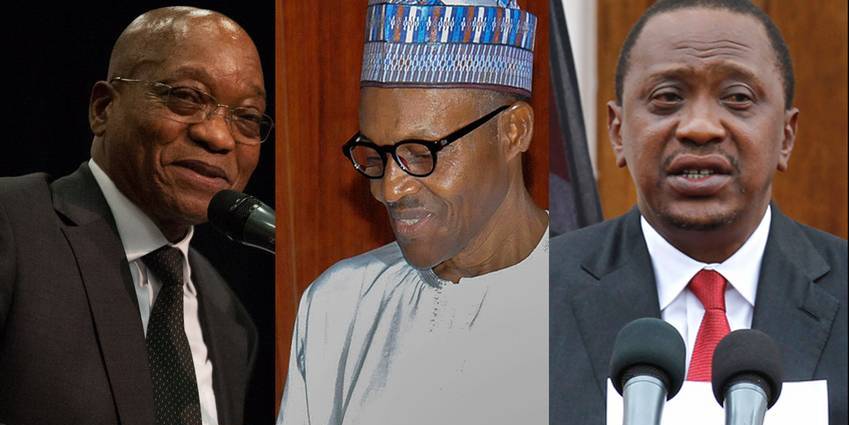News
Op-Ed: Renewing South Africa's promise in a time of crisis
In nation-building terms, South Africa is still in its infancy. Even a well-performing education system would need more than 20 years to fully re-engineer itself towards overcoming such a wretched past.

First published in 1980, Waiting for the Barbarians laid bare the brutal obduracy of colonialism. JM Coetzee’s slender novel about a lonely magistrate in the dying days of an unnamed empire savaged the myths and delusions that underpinned white domination during the apartheid era. But in its examination of malign structures of power, collapsing ideologies and personal dilemmas of guilt and complicity, the novel stretches beyond that narrow frame and becomes timeless. Some passages feel uncomfortably current.
“Empire dooms itself to live in history and plot against history. One thought alone preoccupies the submerged mind of Empire: how not to end, how not to die, how to prolong its era.” – JM Coetzee
Historical parallels run thick and fast in times of crisis. The more intractable the crisis, the more spirited the search for answers from another time. So South Africa finds itself today. The heady days of Codesa and Mandela’s presidency are mined for ways to avert further upheaval and renew the national project, only to find such efforts wanting. Restive parts of the population – notably an increasingly assertive student movement – claim that history needs to be recast because economic and spatial apartheid is still in place. Once-lauded institutions such as the Truth and Reconciliation Commission now feel like unfinished business. A host of prior questions were not asked in the transition to democracy, let alone answered.
Something new is required.
Alas, no one can quite agree on what that “new” might look like. It can only be glimpsed, perhaps, in certain acts. There is a wide consensus that South Africa’s embattled Minister of Finance, Pravin Gordhan, has become the noble foil to a ruling cabal. He acts in the national interest. That much is more or less accepted. On what that “national interest” is, however, there is much less consensus. Today’s urgent imperatives – arrest the country’s economic slide, avoid a downgrade, prevent further erosion of its institutions – are obvious. What comes next is far less clear.
Assuming the worst does not happen and South Africa once again “finds a way”, the disparate groups coming together in defiance of a common adversary shouldn’t expect any future honeymoon to last long. Contestation around race, nationhood and the distribution of public goods is intensifying. The current obsession with President Zuma’s endgame (or long game – take your pick) has put some of these conversations on the back-burner. That no longer seems tenable. Scoring points on his administration’s failures has not produced the desired result. What is lacking is a positive narrative on a renewed vision for the country.
One of the basic tenets of statehood is the “national interest”. It is rooted in shared values and myths that inform “what is best” for a society. They generally arise from, and owe their salience to, key historical events (and occasionally individuals) often described as “foundational experiences”. Those experiences teach people something important about themselves and provide a measure of guidance for the future. Determining the nation’s interest is vitally important because – ideally – it forms the basis and justification for policy, as opposed to the selfish interest of an individual, group or firm. It is much more than an aggregate of the myriad interests that exist in any society. Rather, it is always something that transcends the sum of its parts. All citizens should have a stake in the national interest and therefore it merits advancement and protection by the state and its institutions.
The inherently ambiguous nature of the “nation” can make it difficult to define. This challenge exists everywhere though nowhere more acutely than on the African continent. Colonialism bequeathed into Africa’s newly independent states countless triggers for disunity – contested lands, fragmented ethnic groups, ungovernable territories. The integration of different peoples into a single nation did not develop organically from their shared foundational experiences – decolonisation and liberation – as many had assumed. Without the social underpinning to the new political dispensation, building common values and constructing a robust national identity has eluded most independent African states.
South Africa’s history of internal colonization is distinct but many of the core nation-building challenges affecting the rest of Africa are present here too. Its foundational experiences – the struggle against apartheid/colonialism and the transition to democracy – have not glued its deeply heterogeneous (socially, economically, culturally) society together as strongly as many had thought. Opinion is divided on why South Africa has become unstuck. An emphasis on lost opportunities would suggest that government and business did not leverage the country’s founding myths to create an educated and empowered majority that could witness significant progress in its own lifetime; elite enrichment was prioritised instead. For others, those same myths seem increasingly tawdry because one side of the negotiated settlement – whites – connived to maintain their privilege rather than genuinely transform their thinking and practices. Whichever, the result is the same: crisis.
A rich literature by some of the country’s sharpest economists, social scientists and journalists has sprung up to explain how South Africa got to this point. The Brenthurst Foundation in partnership with the Konrad-Adenauer-Stiftung recently brought together more than a dozen authors to identify common ground that could be tilled for ways to return the country to a positive trajectory. Their main arguments were critiqued by politicians, analysts and business people. The key principles which animated the discussions included a sense of urgency – allowing South Africa’s crisis to deepen would risk permanent economic, social or political harm; a call to action – a focus on concrete steps rather than a repeating of well-known problems, and a belief in a way out – recognition that South Africa’s challenges are not inimitable. Nations the world over have confronted similarly grave challenges and found ways to overcome them and renew their national projects, often adapting to their own circumstances key lessons gleaned from other nations’ experiences.
Entitled From Critique to Action: Renewing South Africa’s Promise in a Time of Crisis, the initiative’s first two convenings unsettled some preconceptions and exposed gaps in our own methodology. Inevitably, perhaps, more time was spent on “critique” than we intended. Conversation fixated on problems, not what had been achieved since 1990 and the numerous islands of excellence that could be built upon. Moreover, voices central to the articulation of any “actions” – namely the rural and youth segment – were poorly represented at the meetings.
It’s not unusual to privilege the voices of elites, especially urban ones. Often described as the “attentive minority”, elites’ importance in policy formulation is based on the power and influence they exercise in society. But competition among elites cannot be the alpha and omega of democracy. The meetings highlighted this sense of disconnectedness between the chattering classes and business on the one hand and the interests and concerns of the bulk of society on the other. How the extravagant power of traditional chiefs disempowers millions of rural South Africans is one example. Another is the tumult on university campuses and in some schools. Tense clashes over race, fees, gender, hair – each an expression of deep dissatisfaction with the status quo. Yet the top echelons of society appear largely clueless as to how to engage students effectively. A key focus going forward will be on new mechanisms to connect to and make sense of what the majority of South Africans are thinking.
Student activism expressed in movements such as Rhodes Must Fall has helped put race relations back to the fore of the country’s agenda. Our meetings explored why the non-racialism espoused by Mandela and his generation is being reappraised, and where things might lead. The waning credibility of the ANC and the crushing lack of social mobility are clearly factors, but the persistence of racist mindsets also raised fundamental structural questions. Of graver concern than the explicit bigotry of Penny Sparrow are the more common, subtler postures vented by Chris Hart on Twitter. Sentiments generally expressed only sotto voce before social media entered our lives have now burst into national scrutiny. Conversely, arguments were made that transformation in the workplace, notably in corporate South Africa, was much further along than social media would have us believe. For some, “black powerlessness” is being exaggerated, even fetishised, to drive political agendas. What seems clear is that there is no consensus on how to deal with the resurgence of racism. Yet a collective fight against it – involving not just government and business but schools, churches, the media, and other organs of civil society – could be a potential reunifying force in society.
No one doubts that future economic growth efforts must reduce inequality and the egregiously high numbers of blacks who have not benefited from the end of apartheid and remain inordinately dependent on the public sector. Yet South Africa’s increasingly corrosive politics has left little space for substantive discussions on economic policy. The National Development Plan has broad support as an economic vision but the path to implementation is strewn with obstacles. Big companies (domestic and foreign) are on an investment strike; fewer and fewer firms view South Africa as a base for future growth. A mismanaged education system is not producing enough skills to drive an advanced economy. Tourism and agriculture provide low-hanging fruit but muddled policies prevent them from being picked. Trust between government and the private sector remains stubbornly low. Most worryingly, more and more young people inhabit a world where no one works.
None of the above is news to anyone studying South Africa’s ailing political economy. Our first meetings generated no silver bullets but plenty of insights for further development were aired. Time and again participants affirmed the need for evidence-based arguments and analysis. Vitally important issues, such as land reform or Black Economic Empowerment, have been overtaken by fact-free rhetoric and political theatre. A renewed emphasis on data and research as the basis for future-focused policy arose in the context of a number of specific recommendations to bolster economic growth, among them:
- A vigorous roll-out of public-private partnerships across the economy;
- Root-and-branch reform of procurement practices;
- A move to meritocratic recruitment in the public service;
- More commitment to tackling corrupt and unethical business conduct; and,
- Encouraging more sector-specific civil society organisations to drive reform in key areas.
So much hinges on South Africa’s politics improving. Beyond the absolute necessity to root out corruption and unwind the dense webs of patronage, there was broad agreement that electoral reform was required to improve policy implementation and enhance accountability. Public debates on the length of election cycles, proportional representation and direct election of the President must be encouraged. And so too an ethos of individual responsibility to restore integrity to one’s own neighbourhoods and spaces. To underline the point, a famous plea by 19th century African-American leader Booker T Washington was aptly invoked: “Cast down your bucket where you are.”
Public debates would play a key role in formulating any new national vision that commands popular attention and support – though not all agree one is needed. South Africa’s acclaimed Constitution has been a staunch buffer and salve as the country passes through treacherous times. For some, the Constitution essentially is the vision. It serves as both the supreme law of the land and the value-laden embodiment of the “rainbow nation’s” yearned-for future. But if the idea of a “vision” presupposes a sturdy consensus on the present, then one has to address the provocation posed in the recent book by Christine Qunta, Why we are Not a Nation. If the damage wrought by apartheid to the social fabric is nowhere near repaired, is it not premature to prescribe a collective national vision? Should that come only after there has been adequate social and economic redress?
Ultimately, there is no validity test for a “nation”. The diverse backgrounds of our participants in some ways reflected that, like many nations, South Africa is an accident of history. Various peoples thrown together by circumstance, occupying a shared environment in which, despite manifold differences, their fates are linked. This idea of mutual dependency in order to progress is scarcely acknowledged or promoted any more.
In nation-building terms, South Africa is still in its infancy. Even a well-performing education system would need more than 20 years to fully re-engineer itself towards overcoming such a wretched past. If other nations are a guide, it’s going to take generations for all the country’s institutional forms to concretise. How they mould into shape will be at least partly determined by responses to big crises and challenges.

A reimagined South Africa will still be informed by the experience of apartheid. Undoing its social, economic and psychological legacy will last for decades to come. The ever-present risk in all societies affected by traumatic national experiences is that they become over-learned. The renowned psychiatrist and political scholar, Vamik Volkan, labelled the term “chosen trauma”. A hardening of identity around negative experiences is not at all uncommon nor necessarily insidious. They can be a wellspring of strength and purpose for nations. But when everything gets filtered through pain and fear, the chosen trauma results in a tyranny of the past upon the imagination.
Nelson Mandela seemed to understand intuitively how to build confidence across communities and steer his fissured country away from the violent abyss predicted by so many. Only a few years ago it seemed an almost settled assumption that he would be a source of guidance and support ad infinitum. That his legacy – non-racialism and reconciliation in particular – may not provide all the answers in this period of crisis is hardly surprising. Progress is never mechanical. Each generation must adapt their inheritance to the requirements of the time. And crises are always opportune moments for renewal even in the healthiest democracies.
Mandela’s legacy can neither be locked inside its historical context or embraced unthinkingly. There should be an interplay. That it is (very) complicated might not be a bad thing. As the noted conservative intellectual, Wilfred McClay, once advised nations grappling with difficult pasts:
“We should not try to edit out those foundational stories’ strange moral complexity, because it is there for a reason. Indeed, it is precisely our encounter with the surprise of their strangeness that reminds us of how much we have yet to learn from them.”
With global markets increasingly volatile and huge domestic threats to the economy – loaded with inescapably bad consequences for the country – bearing down, South Africa cannot afford to consume itself with questions of race or nationhood. In the past its penchant for navel-gazing has often obscured the remarkable aspects of its own transition to democracy. Nor has it served South Africa well internationally. A future dialogue in our initiative will explore how resetting external, especially African, relations could improve the domestic order. It is hard to overstate the amount of hard-earned goodwill, respect and moral authority South Africa has squandered because of largely internal politics.
That said, South Africa cannot afford to ignore how quickly the ground may shift. The recent local elections do not suggest an irreversible collapse of the ANC. But the basic overall cohesion of society affected by its dominance over two decades is falling away. And the process could accelerate without warning.
As power struggles rage within the ANC, a mishmash of competing ideologies is filling the void rather than a clear alternative offer. Informal alliances between market democrats and radical populists may be a nod to Mandela’s spirit of compromise but they raise huge questions about the national interest. At the same time, identity politics are in overdrive. No one knows where it’s heading but the impact on policy has been substantive. Whether you know who Frantz Fanon is or not, identity politics can’t be disregarded. Thus South Africa finds itself in the unenviable position of having to think through both at the same time: technocratic solutions to stave off the worst and long-term ideas to bring out the best. And try to make them complementary.
A tall order – but a necessary one. South Africa has reached a fateful juncture. What comes next is an open question. Like JM Coetzee's unnamed empire, the powerful scheme and try not to end but in time they will be replaced by something new, yet to be born.
This article was originally published in The Daily Maverick.


